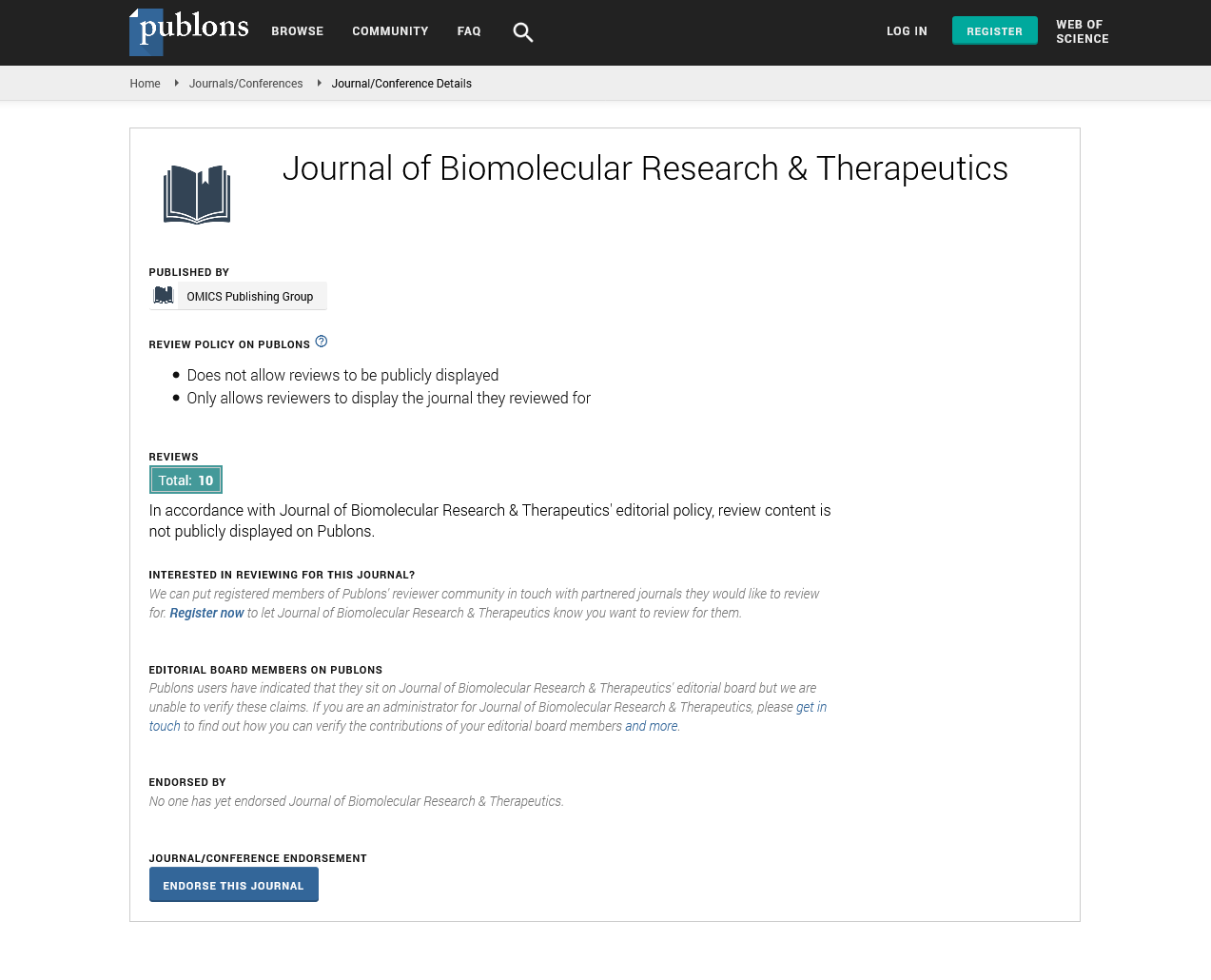Indexed In
- Open J Gate
- Genamics JournalSeek
- ResearchBible
- Electronic Journals Library
- RefSeek
- Hamdard University
- EBSCO A-Z
- OCLC- WorldCat
- SWB online catalog
- Virtual Library of Biology (vifabio)
- Publons
- Euro Pub
- Google Scholar
Useful Links
Share This Page
Journal Flyer

Open Access Journals
- Agri and Aquaculture
- Biochemistry
- Bioinformatics & Systems Biology
- Business & Management
- Chemistry
- Clinical Sciences
- Engineering
- Food & Nutrition
- General Science
- Genetics & Molecular Biology
- Immunology & Microbiology
- Medical Sciences
- Neuroscience & Psychology
- Nursing & Health Care
- Pharmaceutical Sciences
Perspective - (2021) Volume 10, Issue 10
Development and Therapy of Epigenetics and Anticancer Drug
Bindu Nujeti*Received: 07-Oct-2021 Published: 28-Oct-2021, DOI: 10.35248/2167-7956.21.10.183
Perspective
The term epigenetics alludes to the investigation of DNA adjustments that don't change a person's hereditary code, in spite of the fact that they can impact quality articulation. These alterations become evident when certain qualities are turned here and there. Basically, an epigenetic change is the point at which a synthetic compound becomes connected to a solitary quality, having the effect of managing its movement. The epigenome alludes to every one of these epigenetic changes that have been made inside the genome. While these progressions can stay in the phones as they partition, and now and again can even be passed down to the off springs, these alterations don't change the DNA arrangement.
The epigenome can be affected by a huge number of variables, like a singular's eating routine or openness to toxins. Epigenetics has turned into a well-known space of study in science and medical services since researchers have perceived its relationship with quality capacity, protein creation, and basically human wellbeing and infection.
It has been revealed that numerous infections have basic epigenetic factors, which has opened up an entirely different road for drug improvement by focusing on these connected systems with recently settled epigenetic drugs. The primary FDA-endorsed epigenetic drugs arose under twenty years prior. Since that time, a lot more have been set up, as exploration has kept on acquiring foothold, arriving at where epigenetics is currently considered to lead the field as far as original medication disclosure for a long time, especially for disease.
Epigenetic instruments are fundamental for typical turn of events and upkeep of tissue-explicit quality articulation designs in warm blooded animals. Interruption of epigenetic cycles can prompt adjusted quality capacity and threatening cell change. Worldwide changes in the epigenetic scene are a sign of malignant growth. The inception and movement of malignancy, generally seen as a hereditary sickness, is presently acknowledged to include epigenetic anomalies alongside hereditary changes. On-going progressions in the quickly developing field of malignant growth epigenetics have shown broad reinventing of each part of the epigenetic hardware in disease including DNA methylation, histone alterations, nucleosome situating and non-coding RNAs, explicitly micro RNA articulation. The reversible idea of epigenetic abnormalities has prompted the rise of the promising field of epigenetic treatment, which is now gaining ground with the new FDA endorsement of three epigenetic drugs for malignancy treatment. In this audit, we talk about the current comprehension of adjustments in the epigenetic scene that happen in malignant growth contrasted and ordinary cells, the jobs of these progressions in disease inception and movement, including the disease immature microorganism model, and the likely utilization of this information in planning more compelling treatment techniques.
Epigenetic drug disclosure field has confirmed critical progression in the new occasions. A plenty of little particle inhibitors have advanced to clinical stage examinations and are being investigated comprehensively to learn decisive advantages in assorted malignancies.
Epigenetic adjustments are generally mitotically as well as meiotically heritable, permitting the exchange of quality capacity data starting with one cell age then onto the next to ensure that phone personality and heredity loyalty are safeguarded. Notwithstanding, albeit on account of DNA methylation mitotic legacy is very much demonstrated, the circumstance doesn't appear to be so clear on account of some post-translational adjustments like histone acetylation. Critically, epigenetic changes are reset in early stage microbe cells (PGCs), the forerunners of sperm and oocytes, setting them up for improvement in people in the future. Since epigenetic marks don't change hereditary material, this epigenetic reinventing guarantees that genomic data, acquired from guardians, stays immaculate.
Citation: Nujeti B (2021) Development and Therapy of Epigenetics and Anticancer Drug. J Biomol Res Ther. 10:183.
Copyright: © 2021 Nujeti B. This is an open-access article distributed under the terms of the Creative Commons Attribution License, which permits unrestricted use, distribution, and reproduction in any medium, provided the original author and source are credited.

